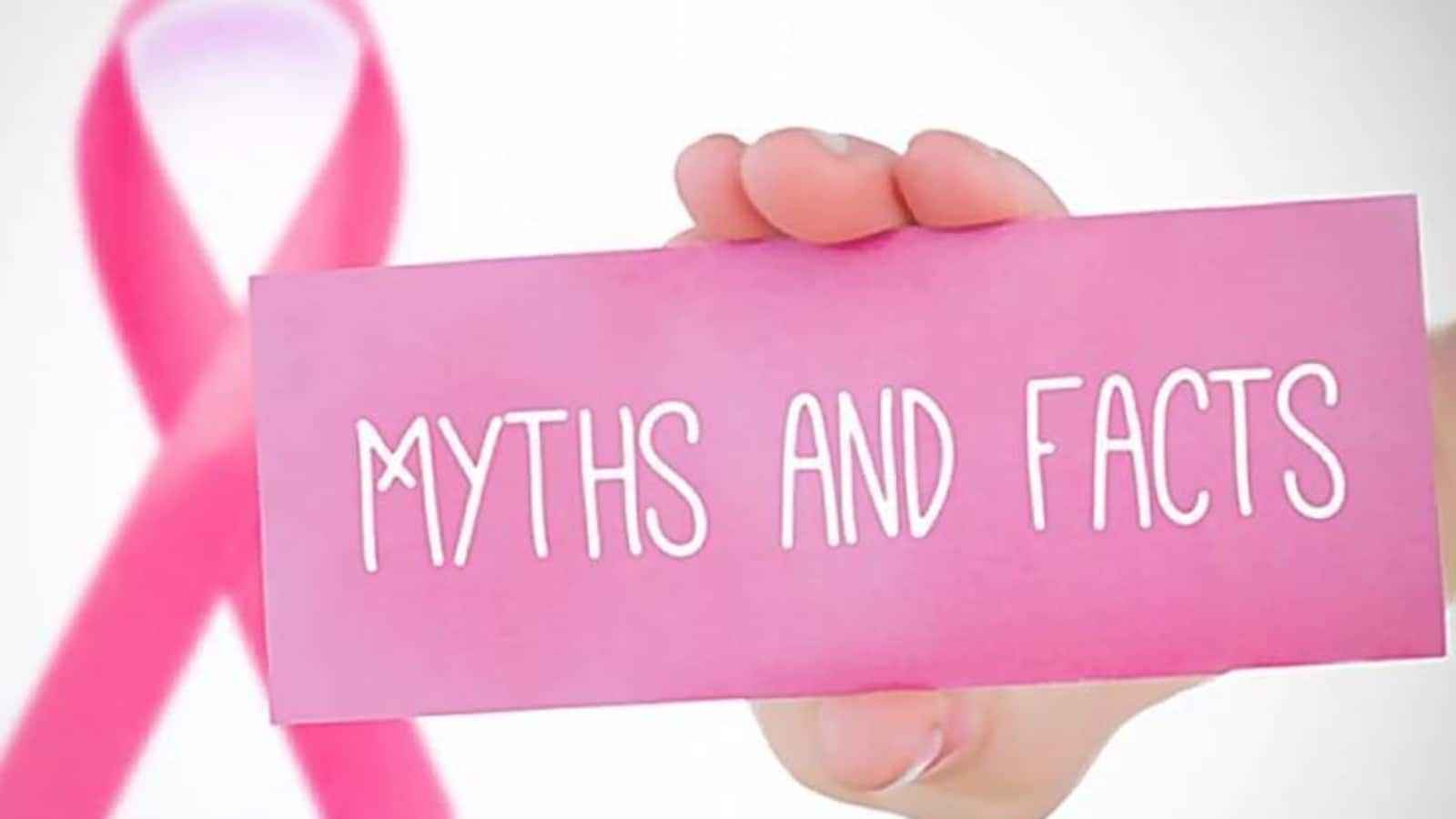
[ad_1]
Cancer, a formidable adversary impacting numerous lives, is frequently obscured by myths and misunderstandings but debunking cancer myths is vital for promoting understanding, support and empowerment while equipping ourselves with accurate information enables us to dispel misconceptions and promote a more informed, compassionate approach to cancer prevention and care. Cancer is a complex disease and many myths and misconceptions surround it which can lead to delays in diagnosis, refusal of necessary treatment and unnecessary anxiety.

Together, let us unite in our efforts to combat cancer, tackling each myth one step at a time. To shed light on this relentless disease, let’s explore the realities behind some of its most prevalent misconceptions.
In an interview with HT Lifestyle, Dr Parikshith Jayaprakash, Medical Oncologist at Sunrise Oncology Centre, debunked the following myths related to cancer –
- Myth 1: Cancer Equals Inevitable Death
Despite widespread belief, receiving a cancer diagnosis does not equate to a hopeless outcome. Thanks to advancements in medical technology and treatment options, many individuals successfully navigate life beyond cancer. Early detection, coupled with comprehensive care and support systems, has significantly improved survival rates and quality of life for countless patients.
- Myth 2: Lung Cancer Solely Affects Smokers
While it’s true that smoking remains a primary risk factor for lung cancer, it’s essential to recognize that non-smokers are also susceptible to the disease. Factors such as exposure to second-hand smoke, environmental toxins, and genetic predispositions contribute to the development of lung cancer in individuals with no history of smoking. By dispelling this misconception, we can better understand the complex nature of cancer and work towards more inclusive prevention and treatment strategies.
- Myth 3: Cancer is contagious.
Contrary to popular belief, cancer is not transmitted through casual contact or shared utensils akin to the common cold. Understanding this fact is vital in eradicating the stigma surrounding cancer patients.
- Myth 4: Superfoods can cure cancer.
While maintaining a balanced diet rich in fruits and vegetables is undoubtedly beneficial for overall health, it’s essential to debunk the notion that any single food or supplement can cure cancer.
Bringing his expertise to the same, Dr Mandeep Singh Malhotra, Director of Surgical Oncology at CK Birla Hospital (R) in Delhi, added to the list of common myths and facts that provide accurate information on cancer –
- Myth 1: Surgery is always mutilating and should be avoided at all costs.
Fact: Advancements in surgical technology, including robotics and reconstruction techniques, have significantly reduced the invasiveness of many procedures. Each treatment option plays a specific role. While surgery may be the best first step for some cancers, like breast cancer, it can be combined with less-invasive options like radiation therapy for best results.
- Myth 2: Traditional medicine like Ayurveda can replace conventional cancer treatments like chemotherapy and surgery.
Fact: While traditional medicine may play a role in preventing cancer recurrence, managing the side effects of conventional treatments, and improving overall well-being, it cannot replace established cancer therapies. Surgery aims to remove the tumor, chemotherapy targets rapidly dividing cells, and radiation sterilizes the area to prevent further growth. These treatments have a clear and established role in acute cancer management.
- Myth 3: Breast conservation (lumpectomy) is less effective than mastectomy (removal of the entire breast) in early-stage breast cancer.
Fact: Extensive research shows no difference in survival rates between breast conservation and mastectomy for eligible patients with early-stage breast cancer. Both options offer comparable cancer control, and breast conservation can provide better aesthetic outcomes.
- Myth 4: Biopsy (tissue sample collection) can spread cancer.
Fact: This is a dangerous myth that can lead to delayed diagnosis. Biopsy is an important step for accurate diagnosis, allowing proper treatment planning. Delaying diagnosis can worsen the cancer’s spread, making treatment more challenging.
- Myth 5: Immunotherapy can cure all cancers and eliminate the need for other treatments.
Fact: While immunotherapy is a promising advancement, it’s not a cure-all. It works by stimulating the body’s immune system to fight cancer cells. Immunotherapy has specific uses, often combined with chemotherapy or radiation, to improve treatment effectiveness and reduce cancer recurrence. Its role in single-handedly curing cancer is limited and only applicable in specific situations.
It is important to remember that every case is unique. Consulting a qualified healthcare professional is important to understand the treatment options and dismiss any myths or misconceptions that a person may have.
[ad_2]
Source link








